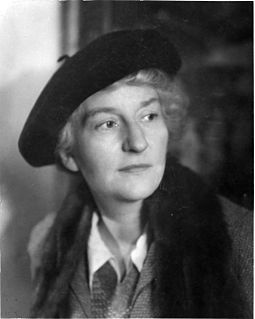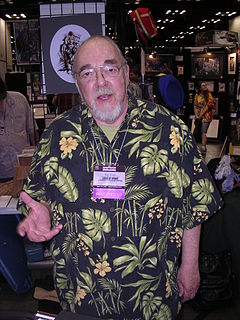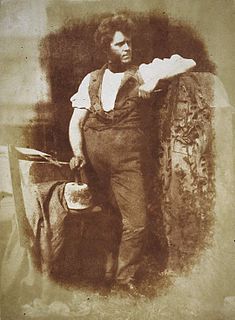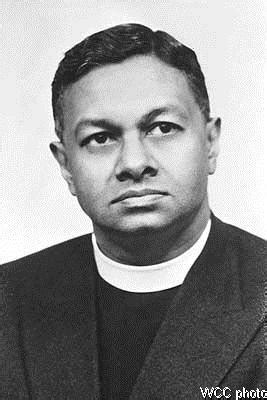A Quote by Malvina Hoffman
If one of God's children finds he cannot see or feel life in other terms than those of form, if he tries to escape and live outside of this obsession and fails, he generally calls himself a sculptor.
Related Quotes
I have claimed that Escape is one of the main functions of fairy-stories, and since I do not disapprove of them, it is plain that I do not accept the tone of scorn or pity with which 'Escape' is now so often used. Why should a man be scorned if, finding himself in prison, he tries to get out and go home? Or if he cannot do so, he thinks and talks about other topics than jailers and prison-walls?
I have now come to a stage of realization in which I see that God is walking in every human form and manifesting Himself alike through the sage and the sinner, the virtuous and the vicious. Therefore when I meet different people I say to myself, “God in the form of the saint, God in the form of the sinner, God in the form of the righteous, God in the form of the unrighteous.
The mind, by its very nature, persistently tries to live forever, resisting age and attempting to give itself a form... . When a person passes his prime and his life begins to lose true vigor and charm, his mind starts functioning as if it were another form of life; it imitates what life does, eventually doing what life cannot do.
The geologist, in those tables of stone which form his records, finds no examples of dynasties once passed away again returning. There has no repetition of the dynasty of the fish, of the reptile, of the mammal. The dynasty of the future is to have glorified man for its inhabitant; but it is to be the dynasty-"the kingdom"-not of glorified man made in the image of God, but of God himself in the form man.
Nothing about his life is more strange to [man] or more unaccountable in purely mundane terms than the stirrings he finds in himself, usually fitful but sometimes overwhelming, to look beyond his animal existence and not be fully satisfied with its immediate substance. He lacks the complacency of the other animals: he is obsessed by pride and guilt, pride at being something more than a mere animal, built at falling short of the high aims he sets for himself.
The chief difficulty is that God demands of us that we live by faith: faith in God, God's sovereignty over the future, God's sufficiency for the present; while, on the other hand, the various other gods whom we can serve appeal to us in terms of the things which we can see and the forces which we can calculate. The choice between the life of faith and the life of sight is a choice between a God whom only faith can apprehend and gods whom one has only to see to understand.
To me, form doesn't always follow function. Form has a life of its own, and at times, it may be the motivating force in design. When you're dealing with form as a sculptor, you feel that you are quite free in attempting to mould and shape things you want to do, but in architecture, it's much more difficult because it has to have a function.
An idol is something that we look to for things that only God can give. Idolatry functions widely inside religious communities when doctrinal truth is elevated to the position of a false god. This occurs when people rely on the rightness of their doctrine for their standing with God rather than on God himself and his grace. It is a subtly but deadly mistake. The sign that you have slipped into this form of self-justification is that you become what the book of Proverbs calls a 'scoffer'.
Saint Augustine cries, Lord I cannot love you, but come in and love yourself in me. According to Saint Paul, we must put off our own natural form and put on the form of God, and Saint Augustine tells us to discard our own mode of nature; then the divine nature will flow in and be revealed. Saint Augustine says, Those who seek and find, find not. He who seeks and finds not, he alone finds. Saint Paul says, What I was, was not I, it was God in me.



































